Georgia Real Estate Market: New Builds Surge in Batumi, Resale Sector Dominates in Tbilisi
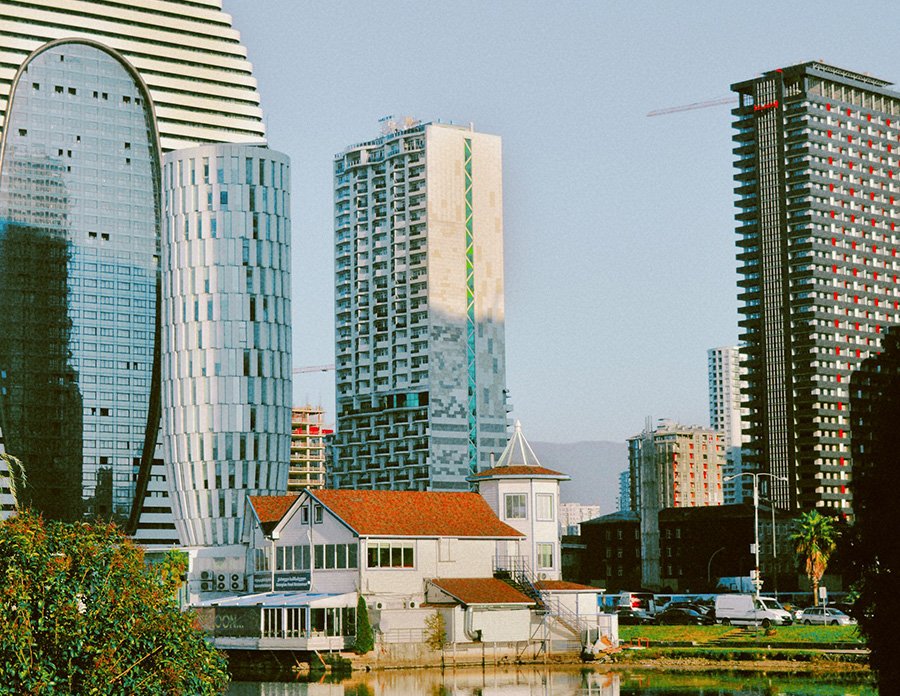
Photo: Unsplash
In July 2025, Georgia’s real estate market delivered mixed results: Tbilisi saw a revival in the resale apartment segment, while Batumi led the surge in transactions, driven by new residential developments. According to Recov.ge, market volume increased in both cities, but price dynamics diverged significantly between new and existing properties.
Tbilisi: Resale Sector Drives Market Growth
In July, Tbilisi recorded 3,713 apartment transactions — a 4% year-on-year increase. The total market value reached $293 million, up 22%. Segments behaved differently: new build transactions rose only 1.5%, primary market sales fell by 11.8%, while the resale market surged by 24.1%. Transactions in existing buildings rose by 11.7%, driving the positive results.
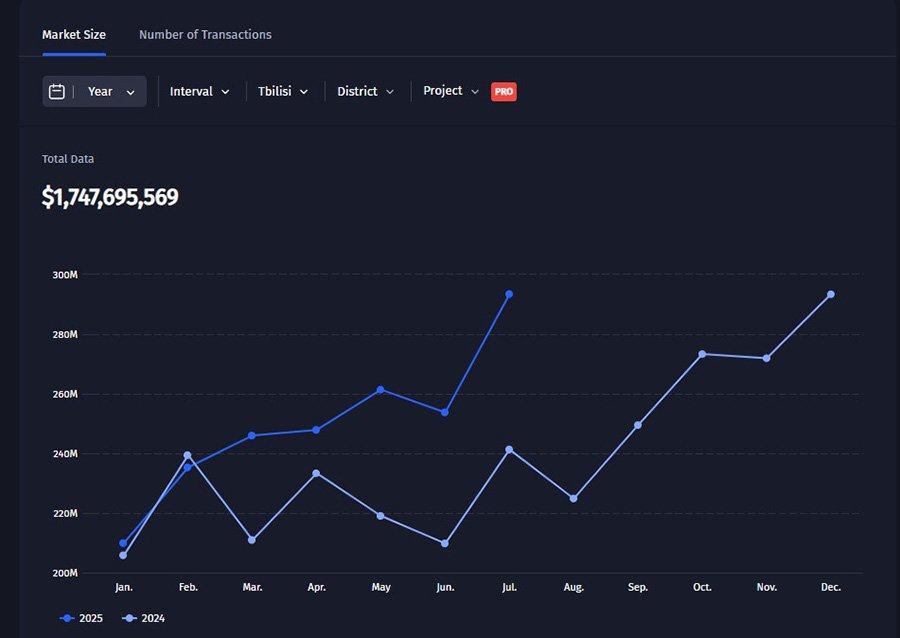
Prices grew unevenly. In the old stock, suburban prices rose 11%, central districts by 7.9%, and wider center by 4.6%. New projects saw higher gains — 14.7%, 13.3%, and 23.8% respectively. However, excluding large-scale long-term projects, growth in the wider center was just 5.9%.
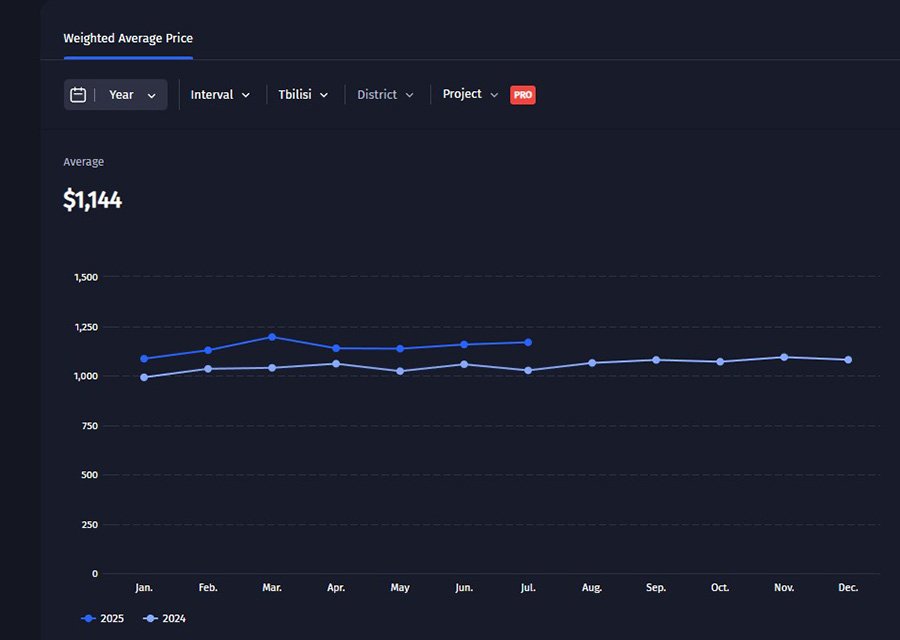
According to Galt & Taggart, 15,865 transactions worth $1.2 billion were registered in Tbilisi between January and May. In May, sales exceeded the average of the previous four months by 6.4% in the primary sector and by 11.8% in resale. According to the Public Registry, 3,325 deals were recorded in May, with resale up 6.5% YoY, though the five-month total dropped 6.4%. Primary sales rose 2.2% despite registration delays.
Survey data from major developers (covering ~45% of the market) confirms this trend. May sales were 6.4% above the January–April average and up 48.1% year-over-year. A total of 3,179 units were sold in five months — nearly matching 2024 levels. In projects to be completed by 2025, 81% of units are already sold, many via internal installment schemes.
Top prices for new housing were observed in Vake ($2,467/m²) and Mtatsminda ($2,844). The most affordable areas were Vashlijvari, Gldani, Didi Digomi, and Samgori — ranging between $1,000–$1,100 per m².
Rental rates in Tbilisi declined. In May, the average rental price dropped 2% to $9.3/m². In Vake, the rate was $14.3/m², Mtatsminda — $11.9/m². Samgori ($7.6), Vashlijvari ($7.8), and Gldani ($7.9) offered the lowest rents. Average rental yield in Tbilisi is estimated at 8.4%, outperforming many European capitals. Foreign investors, particularly from Israel, remain highly active.
Batumi: New Developments Take the Lead
Batumi was the July market leader. The city recorded 1,664 transactions — up 35.6% YoY, according to Recover. Total market volume reached $104 million (+60.7%). Most growth came from new builds: transactions rose 38.4% in new stock and 4.9% in resale. One large deal involving ~180 apartments played a key role. Without it, new build growth was still 23.3%.
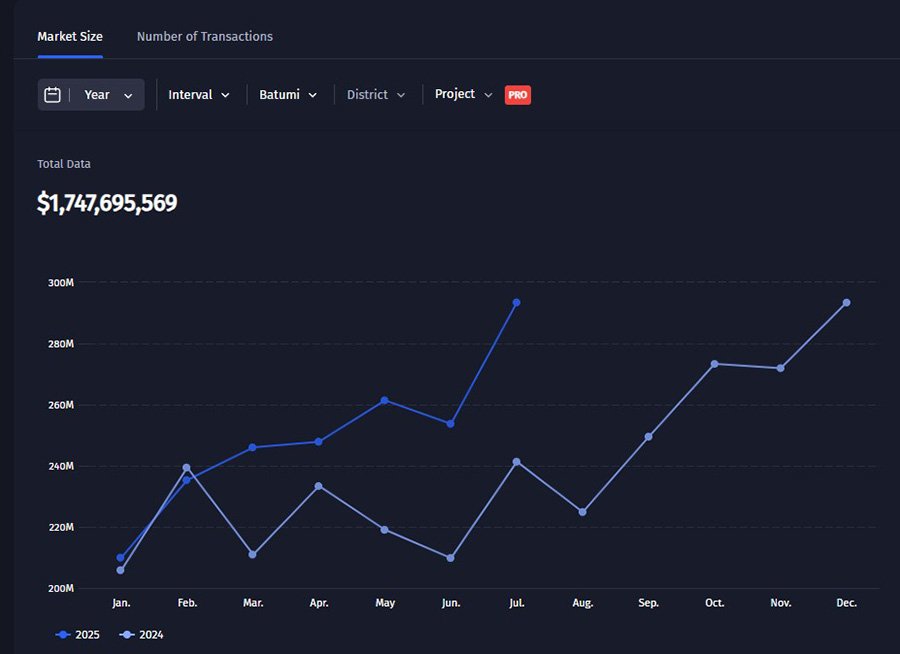
The average price per square meter in Batumi reached $1,369. Primary market prices rose 48.3%, resale — 12.5%. Excluding the major transaction: 19.35% and 14.5% respectively.
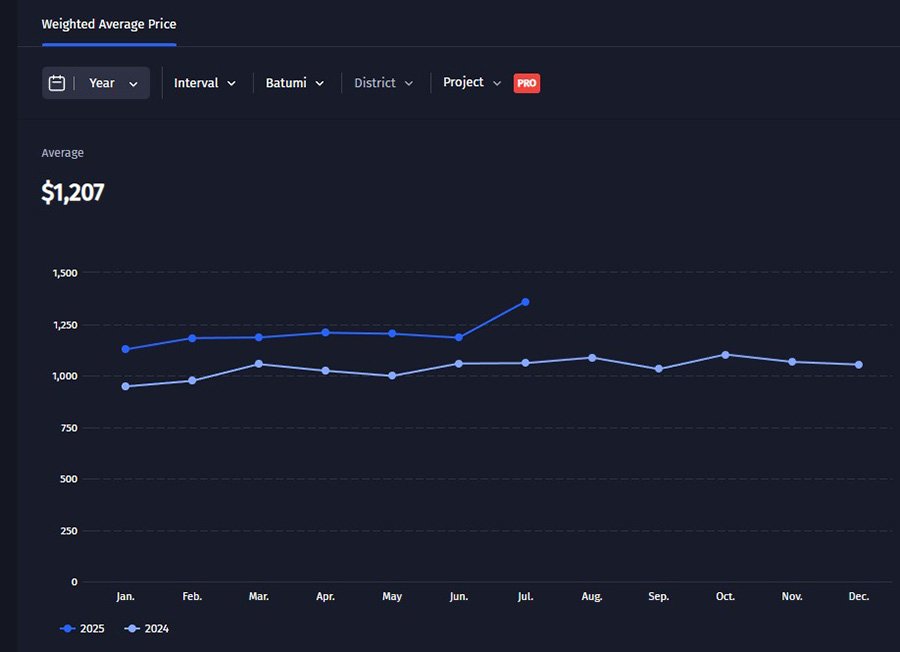
Galt & Taggart previously reported 4,018 units sold in Batumi in Q2 2025 — a 9.5% increase year-over-year. Resale grew 23.4%, while the primary market showed a technical 0.5% decline due to registration delays. However, developer sales rose 13.1% QoQ and 37.3% for H1.
In June, the average new build price reached $1,427 (+13.5% YoY). "New resale" averaged $1,307, and “white frame” construction reached $1,547/m². The most active zone was New Boulevard, with 4,071 sales (+21.7%) at $1,445/m² (+11.7%). Old Batumi remained the most expensive area: 519 transactions (+15.8%) at $2,231/m² (+12.1% YoY).
Among suburbs, Gonio–Kvariati stood out with 3.1% sales growth and prices averaging $1,715 (ranging from $1,150 to $5,800). The area combines mid-range and premium seafront projects, including international hotel brands — making it one of the most promising districts.
The rental market remained stable. In June, long-term rental rates for 50–60 m² apartments averaged $11.9/m² (+1.6%). Average gross yield in Batumi is 8.6% — higher than in Tbilisi and well above figures for Budva, Lisbon, or Nice.
Galt & Taggart forecasts continued growth for Batumi’s market through 2025, albeit at a more moderate pace. Coastal districts with solid infrastructure — especially Gonio–Kvariati — remain the most attractive. Rising tourist flows and plans to open over 300 hotels by 2028 will strengthen Batumi’s status as a key investment hub in the Black Sea region.








